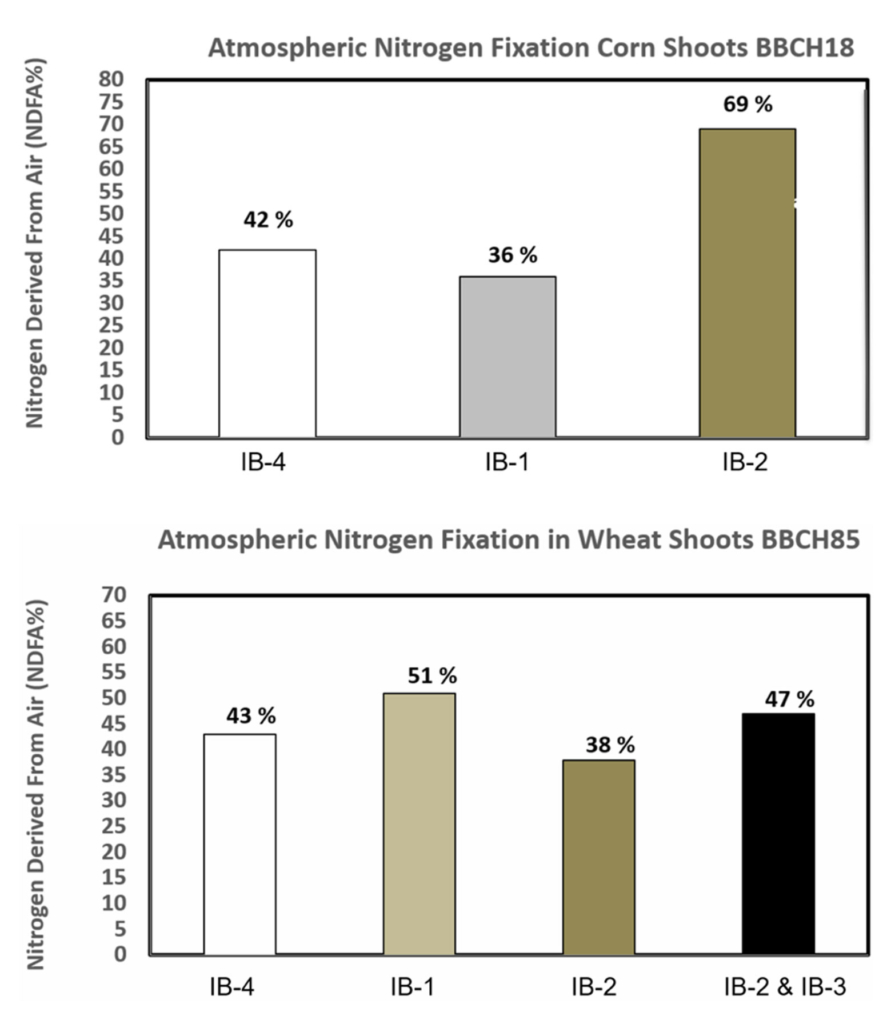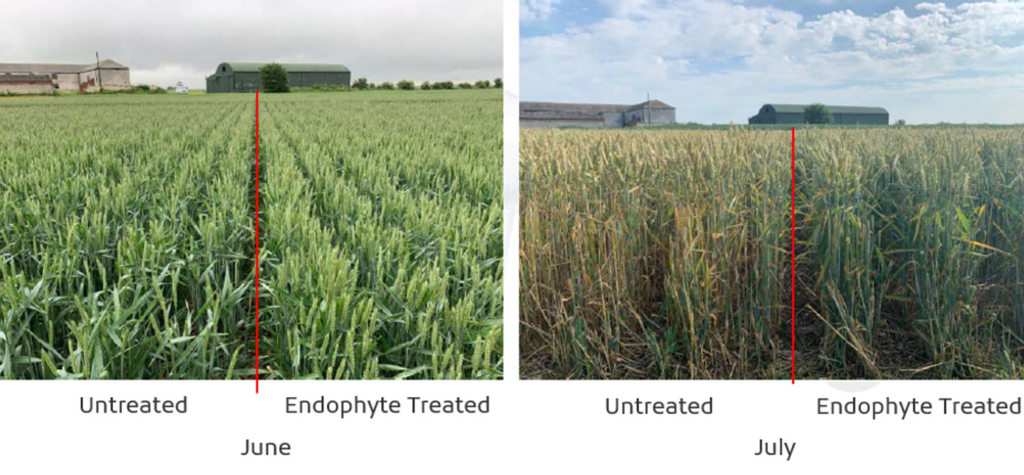Intrinsyx Bio has conducted extensive tests to validate Dr. Doty’s research. The company has conclusively confirmed that these nitrogen-fixing properties can be successfully applied to traditional crops and integrated into modern farming practices. Research shows the presence of selected microbes inside inoculated plants using in-planta PCR detection.
In addition, more than 200 field trials have been conducted, many in collaboration with the world’s leading agricultural input companies, seed companies, and fertilizer companies. These trials have shown that our endophytes are effective in more than 20 different crops, including cereals, oilseed, vegetables, permanent crops, forestry, and turf grass.
Kansas State study shows evidence of nitrogen fixation in crop plants
Kansas State University conducted a 15N isotope dilution assay greenhouse study, inoculating corn and wheat plants with Intrinsyx Bio’s endophytes. This experimental setup differentiates between nitrogen accumulated in the plant from the soil and nitrogen fixed from the atmosphere. The 2022 study showed that endophyte-treated corn and wheat plants derived up to 69% and 51% respectively of their shoot nitrogen from N2 gas in the atmosphere. This was a greenhouse study conducted under limited nitrogen. Results in the field may vary.

Wheat trial show significant nitrogen accumulation over the growing season
The following graph is from a winter wheat field trial conducted in 2019 by Unium Bioscience in North Lincolnshire (UK) under standard agronomic conditions (normal fertilizer rates). The inoculated winter wheat accumulated more nitrogen in plant tissue over the growing season.
This same study showed that winter wheat with endophyte seed treatment resulted in denser canopy and retained greenness later into the season.

Foliar application with a combination of nitrogen fixing and phosphorus mobilizing endophytes increased kernel count and grain fill in corn.

